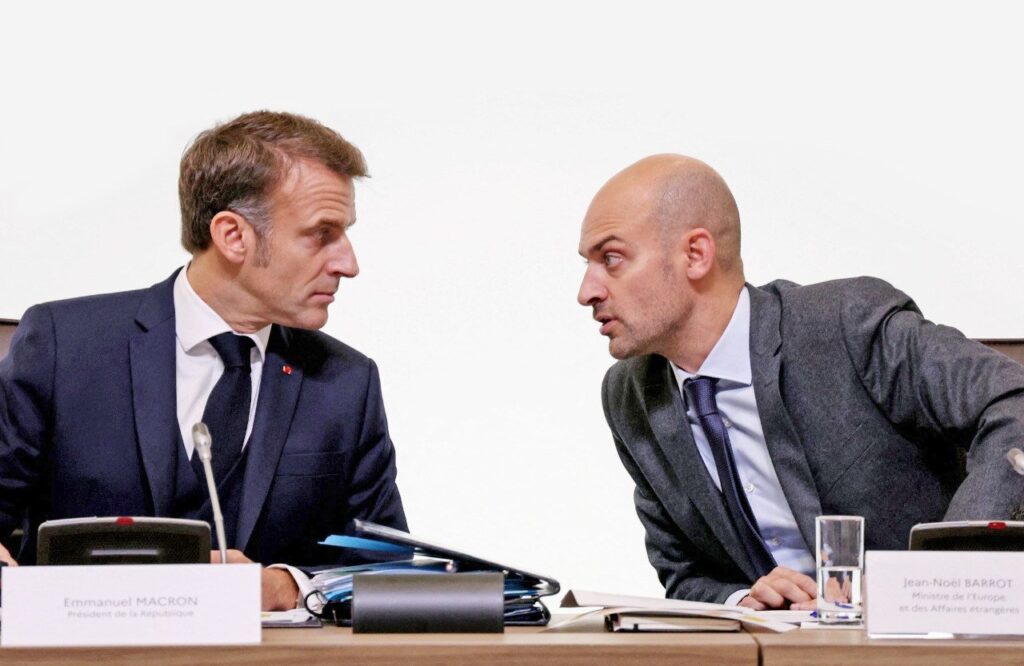TEHRAN – French Foreign Minister Jean Noel Barott has accused Iran of being “in the developing cusp of nuclear weapons,” further threatening to revive sanctions lifted under the 2015 Joint Comprehensive Action Plan (JCPOA) if Iran’s nuclear activity threatens Europe’s security.
These unfounded allegations were swiftly condemned by Iran’s UN ambassador, Amir Seid Irabani. Irabani reaffirmed Tehran’s commitment to a peaceful nuclear program, highlighting its adherence to strict IAEA testing and fatwa issued by leaders of the Islamic Revolution.
Irabani denounced France for hypocrisy, pointing to its own modernization of nuclear weapons, estimated at 290 warheads, and silence over Israel’s undeclared nuclear stockpile. He also criticized the European trio for failing to follow the end of the JCPOA after the US unilateral withdrawal in 2018 under Donald Trump, explaining the threat of Paris to reprise sanctions as a form of “economic threat.”
Tehran claims that the gradual decline in compliance with the JCPOA is legal and proportional and is rooted in Articles 26 and 36 of the contract. More importantly, the Iranian ambassador emphasizes that it cannot be pursued under diplomacy, instead seeking “real diplomacy” based on mutual respect and equality of sovereignty.
However, while Iran is consistently ready to touch on the talks again, it appears that the European side is caught up in strategic turmoil. The erosion of European status in negotiations became most obvious when indirect US-Iran talks resumed under the Trump administration and reopened without major European involvement.
In fact, European dissatisfaction has grown explicitly in diplomatic circles. Many EU leaders were the centre of mediating the original JCPOA and are now openly disappointed by their exclusion from the revived debate. But European bystanders are not the result of Iran’s negligence. On the contrary, Iran has performed multiple overtures to re-engage with the European trio.
During a press conference after Wednesday’s Cabinet meeting, Iranian Foreign Minister Abbas Aragut announced plans to hold preparatory meetings in E3 (France, Germany, UK) and Rome before broader discussions on the nuclear issue. Nevertheless, the Minister acknowledged the decline in Europe’s role in the process due to “flawed policies,” but he nevertheless emphasized that Tehran is willing to cooperate rather than exclude Europe. He reaffirmed Iran’s commitment to solving problems through “global understanding” and noted that negotiations with the US and IAEA surveillance will continue to play a key role.
Additionally, in a post on his X account, published on April 24, Araghchi lamented that his relationship with E3 had been exacerbated by the European decision to choose a conflict over diplomacy, primarily to a “loss” situation. He spoke to the New York Foreign Minister in September with the E3 Foreign Minister, where he offered a comprehensive dialogue that was not limited to nuclear issues, but was rejected.
Araghchi’s offer is still standing. Consulting with his counterparts in Moscow and Beijing, he expressed his preparedness to visit Paris, Berlin and London, informing him of his willingness to resume discussion and restructure Iran’s ties.
This call for European autonomy speaks to more broadly criticism that Iran has long held. That means Europe was not consistently operated independently, especially in its foreign policy in Iran.
Iranian officials argue that in order for Europe to regain credibility and play a meaningful role in nuclear diplomacy, it needs to take bold steps towards independence. This could begin with a reassessment of sanctions policies. In particular, the willingness to invoke the JCPOA’s controversial “snapback” mechanism would restore UN sanctions based on alleged Iran’s violations.
From a Tehranian perspective, calling a snapback is not only unfair and illegal, but also politically reckless. It will firmly place E3 on an aggressive stance towards Iran, obstructing the possibility of a diplomatic solution. Instead of acting as a mediator or bridge builder, Europeans take the risk of allowing escalation, undermining both local stability and unique reliability.
Iran also sees this moment as a test of Europe’s commitment to multilateralism. If Europe continues to reflect Washington’s sanctions regime, we cannot expect to be taken seriously as an independent actor. But if it demonstrates true independence, perhaps by refusing further sanctions or accepting Iran’s offer of dialogue, Yop could diagrammatically chart a new course in Western Asian diplomacy.
Ultimately, Iran’s message is clear. Nuclear diplomacy is still possible, but not through threats or duplication. It is the only viable path forward for respect, sovereignty and authentic engagement. And it’s up to Europe to decide whether they’re ready to walk that path.

